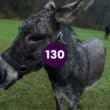On this episode, we discuss some of our favourite films from the 2022 fall festivals, first features, and the dominance of Netflix Movies.
Don’t miss a single episode. Become a member.
Get exclusive access to our entire podcast archive of 150+ episodes, all future members-only episodes, and early access to new podcast seasons.

This episode features Editor-in-Chief Alex Heeney and Executive Editor Orla Smith.
About the episode
On this members only episode, we discuss the highlights of the fall film festival circuit, the new and troubling dominance of Netflix (and other streamers’) films, and exciting (or not-so-exciting) first features. We discuss favourites like The Eternal Daughter, Saint Omer, Other People’s Children — many of which will get a full-length episode of their own in the coming months. We also discuss some of the biggest disappointments. Orla shares her experience at the London Film Festival. Alex shares her experience attending the Toronto International Film Festival.
On this episode
- 00:00-5:24 – Intro to the episode and the festivals we’ve covered
- 5:24-18:55 Rebecca Zlotowski’s Other People’s Children and a new film grammar for women as multitaskers in Other People’s Children, Mia Hansen-Løve’s One Fine Morning, and Joanna Hogg’s The Eternal Daughter FREE EXCERPT ENDS HERE
- 18:55-20:55 How many films we saw, and some of the downsides
- 20:55-25:45 Orla’s favourites including Laura Poitras’s All the Beauty and the Bloodshed, Lucien Castaing-Taylor and Verena Paravel’s De Humani Corporis Fabrica, Jamie Dack’s Palm Trees and Power Lines
- 25:45-31:14 Alex favourites including Alice Winocour’s Paris Memories and Darlene Naponse’s Stellar
- 31:14-50:34 The dominance of Netflix and streamers, Matthew Warchus’s Matilda, Causeway
- 50:34-56:50 The festival circuit: great festival films from earlier this year that disappeared (My Small Land, Lullaby, 32 Sounds), screened only at local festivals (Nelly and Nadine, Framing Agnes) and films that keep coming back. We also discuss the London Film Festival’s problematic approach to programming and why we love the Berlinale’s programming.
- 56:50-1:00:24 The lack of live cinema experiences at festivals (like 32 Sounds) in a year when we are being forced to return to cinemas for festivals.
- 1:00:24-1:05:50 Directors’ first features, Charlotte Wells’s Aftersun, the rise of Paul Mescal, Georgia Oakley’s Blue Jean
- 1:05:50-1:16:15 Depressing trends in British cinema and the British film industry and how that relates to the country’s funding practices. We also draw comparisons to the Canadian film industry. Why is it so hard to get a second feature made? And why do first features have to conform so much to industry standards? We discuss Francis Lee’s films, Hope Dickson Leach’s film, and several Canadian filmmakers.
- 1:16:15-1:25:29 Thinking about National Cinema at film festivals, especially Canadian cinema and British cinema
- 1:25:29-1:31:36 Plan 75, Palm Trees and Power Lines, and other great under-seen first features that keep screening everywhere
- 1:31:36 Sign offs and related episodes
Related episodes
- Women at Cannes Season: Listen to our five-episode 2022 season on the history of Women directors at the Cannes Film Festival. We highlight some of the best films by women and women filmmakers to screen at the festival. We also discuss the festival’s ongoing poor track record of programming films directed by women.
- Ep. 125: Berlinale 2022: On this omnibus episode, we discuss the highlights of the Berlin Film Festival screening in the festival’s under-discussed and under-appreciated (but excellently programmed) sidebars.
- Ep. 109: TIFF 2021 Part 1: In last year’s counterpart to this episode, we discussed the highlights of the 2021 Toronto International Film Festival (TIFF), including Terence Davies’s Benediction and Joachim Trier’s The Worst Person in the World
- Ep. 111: TIFF 2021 Part 2: Continuing our discussion on the fall film festivals in 2021, with a focus on TIFF, we discussed Power of the Dog, Ali & Ava, and more highlights from TIFF.
- Ep. 49: Split screen storytelling in Lungs and Conversations with Other Women: Listen to our episode on Matilda director Matthew Warchus’s fantastic live-recorded theatre production of Lungs, (Members only)
- Ep 60: Old Vic In Camera Productions: Three Kings and Faith Healer: Listen to our podcast on Matthew Warchus’s two follow-up live-broadcasted productions of Three Kings and Faith Healer (Members only)
Show Notes
- Become a member for access to all of our upcoming episodes, as well as our entire archive of episodes.
- Read all of our TIFF 2022 coverage
- Read all of our film festival coverage from this fall here
- Read Alex Heeney’s review of Matilda: The Musical on stage
- Read Alex Heeney’s review of Stellar
- Read Alex Heeney’s review of Eo
- Read our review of Matilda director Matthew Warchus’s Pride
- Read Alex Heeney’s review of Palm Trees and Power Lines
- Read Alex Heeney’s interview with Sam Green on his live documentary 32 Sounds
- Read Alex Heeney on Canadian immigration stories at TIFF 2022.
The transcript for the free excerpt of this episode is AI-generated by Otter.ai.
[fusebox_transcript]

